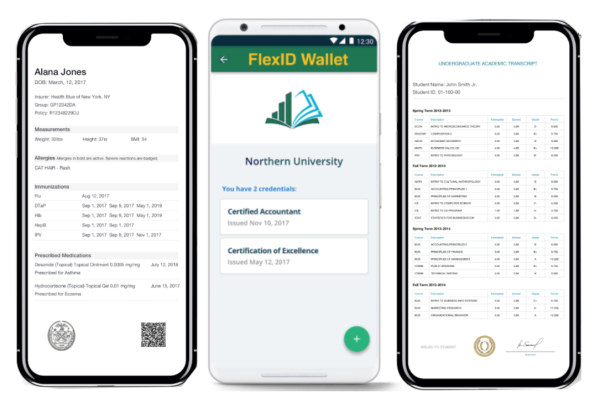Much of the world’s attention around blockchain is on the highs and lows of cryptocurrency values. Startups like FlexID remind us that distributed ledger technology has the potential to play other roles, including offering trusted records of identities without the need for a centralized authority.
One of the startups working toward this vision is Zimbabwe’s FlexID, which is building a blockchain-based identity system for those excluded from the banking system due to their lack of identity documents. FlexID’s idea has won it funding from Algorand, a blockchain protocol created by Turing Award-winning cryptographer Silvio Micali. The two parties didn’t disclose the size of the investment.
African countries have made great strides in promoting financial inclusion over the past decade, but it’s still early days. More than 60% of adults in sub-Saharan Africa are unbanked, according to World Bank estimates for 2021.
Several years ago the numbers were starker. In Zimbabwe, for instance, only 30% of the adult population had access to any financial services as of 2014. The number of bank accounts in the country stood at 1.5 million in 2016.
There’s a general conception that increasing access to financial services in a country leads to improvement in people’s economic welfare. And that’s what the Zimbabwean government sought to accomplish when it introduced a financial inclusion scheme from 2016 to 2020.
The effort achieved some success: The percentage of the Zimbabwean adult population with access to financial services increased to 55% while the number of bank accounts rose to 8.5 million in 2020.
However, there’s still plenty of work to be done in this regard. When people have little or no confidence in the financial system, or they don’t know certain financial services that meet their needs exist or they don’t have formal identification documents to seek these services, achieving optimal financial inclusion can prove herculean.
These are issues that affect Africa and emerging markets, not just Zimbabwe. FlexID’s self-sovereign identity (SSI) platform takes a decentralized approach and gives users control over their personal information — not common in Africa, where other upstarts provide centralized solutions, such as Smile Identity, YC-backed Identitypass and Dojah.
With funding from Algorand, FlexID aims to make its decentralized identity network available in emerging markets where over one billion people are estimated to lack formal identification, the startup said in an announcement. Zimbabwean serial entrepreneur Victor Mapunga founded FlexID in 2018 out of his frustration with the banking system.
FlexID is giving users a blockchain wallet that stores their verificable credentials. Verification is done on-chain through Algorand, which bills itself as a solution to the blockchain trilemma of security, scalability and decentralization. FlexID will also be integrating with other Algorand decentralized apps (dApps).
FlexID’s investment from Algorand comes at a time when African blockchain startups are pulling in huge sums from investors. A recent report said over 40 African blockchain startups raised a total of $127 million in 2021. This year has already seen some eye-popping investments, such as Mara’s $23 million seed round from investors like crypto exchange giants Coinbase and FTX.
Though FlexID provides service in the identity space, the overarching sector its solution and most blockchain platforms fall under is fintech. Companies like FlexID are reducing people’s dependency on cash and remittance fees via crypto, lowering barriers to setting up an account via crypto wallets, and addressing the continent’s documentation challenge.
Credit: Source link


Comments are closed.